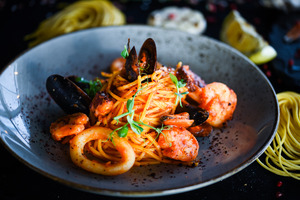
If you’re currently trying to get sleep apnea under control, it’s worth taking a look at your diet. Certain foods can potentially make your sleep disorder worse, while others can actually make it easier to get a better night’s rest. In the interest of improving the quality of your slumber, here’s a closer look at some of the foods you should stay away from when you have sleep apnea, as well as some of the foods you should indulge in more.
What Foods Should You Avoid When You Have Sleep Apnea?
Some of the foods that you shouldn’t eat when you’re suffering from sleep-disordered breathing include:
- Red Meat and Processed Meat: Research indicates that individuals who eat a lot of red or processed meats may suffer from more severe sleep apnea symptoms. On top of that, fatty red meats and sleep apnea can both increase your risk for cardiovascular problems, so combining them can easily exacerbate the issue.
- Sugary Foods: Foods that are high in sugar often contribute to weight gain. This is cause for concern because being overweight is one of the top risk factors for sleep apnea.
- Anything with Alcohol: Alcohol can cause the muscles in your upper airway to relax, thus making them more likely to obstruct the flow of air.
- Dairy Products That are High in Fat: Many dairy products, such as whole milk and certain cheeses, can lead to weight gain if you eat too many of them. Additionally, they can cause the body to produce more mucus, which could easily worsen your sleep-disordered breathing.
What Foods Can Help When You Have Sleep Apnea?
Individuals with sleep apnea may benefit from eating more of the following foods:
- Fruits and Vegetables: Various fruits and vegetables are loaded with vitamin C, vitamin E, and other antioxidants that can improve sleep quality. Also, the fiber these foods contain can help you lose weight by causing you to feel full sooner and longer.
- Seafood: Many types of seafood are high in omega-3 fatty acids, which can help reduce the inflammation that occurs as a result of sleep apnea. Also, seafood often contains vitamin D; this is significant because many people with sleep apnea are found to have a vitamin D deficiency.
- Walnuts: In addition to being able to lower inflammation, walnuts are a good source of melatonin, which is a hormone that plays a key role in helping you sleep.
- Eggs: While eggs might not have a direct impact on the quality of your sleep, the choline they contain may improve your cognitive health, which could potentially counter the impact sleep apnea has on your mental clarity.
Of course, simply changing your diet is no substitute for properly treating your sleep apnea. If you think you’re suffering from sleep-disordered breathing, you should have the problem diagnosed by an expert right away so that they can point you toward the treatment options that are right for you.
About the Author
Dr. Rashpal Deol has well over 35 years of dental experience. He holds membership with the American Board of Dental Sleep Medicine (with whom he is currently working on achieving Mastery status), and he is certified in the use of the VIVOS sleep apnea therapy system. To schedule a consultation with Dr. Deol at Oak Ridge Dental in San Ramon, visit his website or call (925) 735-6190.




